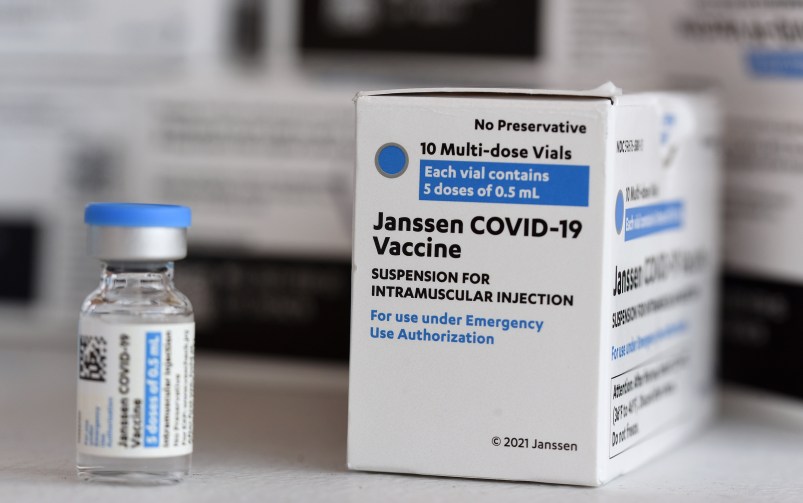A federal vaccine advisory committee continued its deliberations on Friday over whether or not it should lift its recommendation for a pause on administering doses of Johnson & Johnson’s single-shot coronavirus vaccine. The pause was issued after reports earlier this month that six women developed a life-threatening blood-clotting condition after getting the vaccine in recent weeks.
If lifted, the Centers for Disease Control and Prevention and the Federal Drug Administration could recommend that public health officials resume administering the roughly 9 million doses that have already been distributed to states within hours or days — although any advisory panel recommendation would need to be approved by CDC director Rochelle Walensky.
Ahead of Friday’s meeting, the FDA was expected to lift the pause given that experts have said the risk of developing a clot after receiving the vaccine appears far lower than the chance of a clotting issue caused by a severe COVID-19 infection. The CDC says there have been 7 cases of the complication per million doses among women between 18 and 49.
Two government officials familiar with the matter told the Washington Post that the panel is expected to recommend attaching a warning to the vaccine’s label to inform vaccinators and potential vaccine recipients about the rare and dangerous possible side effect, without imposing age restrictions. The vaccine doses could be used again as soon as this weekend, they said.
The committee’s considerations comes as the CDC reported on Friday nine new cases of a rare blood-clotting disorder in people who had received Johnson & Johnson’s COVID-19 vaccine, bringing the tally of those known to have developed the extremely rare complication to 15, four of whom are currently in an intensive care unit.
The new data was presented at a meeting of the agency’s independent Advisory Committee on Immunization Practices, after the panel said last week that it needed more information before it could determine just how low the risk was for developing the blood-clotting issue.
The 15 cases were a scattered few among nearly 8 million doses of the vaccine administered as of April 21.
All of the confirmed cases reported were in women, including three who died and seven who remain in the hospital, although CDC officials have cautioned that any conclusions that only women were affected by the disorder would be premature.
“We know that it’s not a good thing to leave the pause going for any longer than it absolutely has to go for,” Dr. Peter Marks, a top FDA vaccine regulator, told The New York Times on Thursday. “Once, essentially, the adequate discussion has occurred, we’re prepared to move as quickly as we possibly can.”



